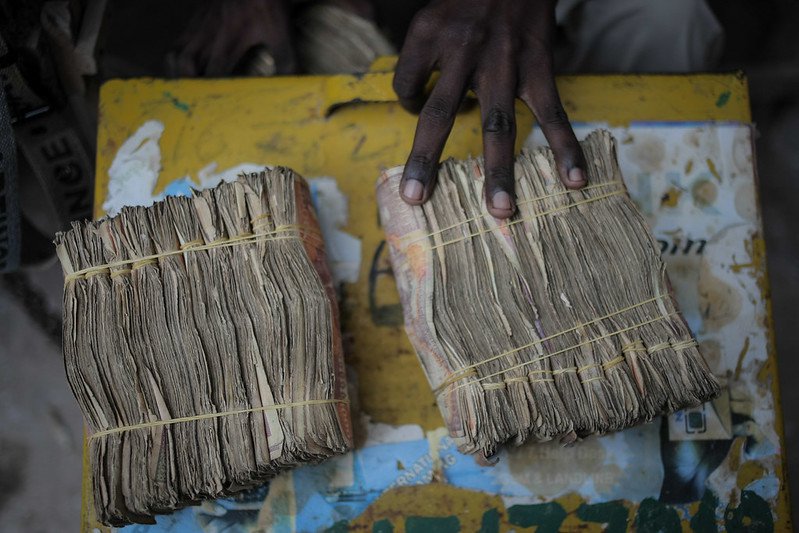Nearly one year into the global Covid-19 pandemic, the health crisis in sub-Saharan Africa is better than it was envisaged to be. However, the pandemic is having a crushing effect on the economy. This is particularly acute in the informal economy, where many citizens live ‘hand to mouth’ and so have been immediately adversely affected by ‘lockdowns’ and by deterioration in the economy.
The response and recovery to these economic effects is heavily dependent on finance. It is a key enabler of governments’ ability to provide healthcare, support the economic recovery and for the private sector to resume their businesses.
Positive responses
On the plus side, African governments have been at the forefront in responding to the crisis. They rapidly accessed finance – including from domestic sources – to enable them to address their countries’ health needs and to provide fiscal support more broadly within the economy.
However, this positive response was dominated by the larger and stronger economies in the region, such as South Africa and Egypt. Smaller and weaker economies responded, but given fiscal constraints, were restricted to less effective – although still welcome – measures such as tax holidays and providing health insurance. The overall fiscal response in Africa has been just 10% of middle- and high-income countries response, even relative to GDP.
It is also promising that international financial institutions have learnt lessons from the financial crisis of 2007. Funds from shock facilities to governments were quickly dispersed back in 2007, and there was also a rapid agreement on debt relief. This included the International Monetary Fund writing off $228 million in debt from 19 countries and using the fast-dispersing Poverty Reduction Growth Trust (PRGT) to disperse over $20 billion to African countries. The G20 also worked with bilaterals to deliver substantial debt relief to the continent.
Turning towards long-term recovery
Now, there is a need to turn to longer-term recovery. A key hangover from these positive responses is concerns about debt sustainability. Prior to the Covid-19 crisis, five African countries were in debt distress (Eritrea, South Sudan, Zimbabwe, Gabon and Mozambique) with another 12 countries facing high risk of distress. These countries are also where extreme poverty is concentrated. Further debt restructuring is needed to ensure that poverty in such countries is not compounded over the long-term.
Stronger economies simply need to access further private financing to support their economic recovery. On a positive note, some African governments have already returned to the international market with a $1 billion Eurobond issuance in November for the Ivory Coast.
Three ways to build back better
Assuming such finance can be accessed, it is critical that it is applied to ‘build back better.’ This should include addressing the livelihood of low-income households in the informal sector and the increasingly urgent problems of climate change.
In the informal sector, it is essential that finance for small and microbusinesses is retained. Development finance institutions can do this by continuing and increasing financing through banks and microfinance institutions ringfenced for this sector.
But building back better demands more. Here are three ways to do this.
1. Digitalisation
The global pandemic has highlighted and accelerated the digitalisation of the economy. In sub-Saharan Africa, it has been rapidly evolving as a key enabler of pro-poor economic growth. A digitalised economy enables business opportunities and services to be delivered to low-income households at a very low marginal cost, including those in remote locations. It has leveraged the existing telecommunications and mobile banking networks which had been established over the last decade into new opportunities for businesses. It has also seen a boost of innovation among entrepreneurs across the continent. Further support and promotion of this trend and the opportunity it offers should be a key focus for development institutions, national governments and private sector investors.
2. Investment
There needs to be continued and greater investment in key enablers of economic growth including logistics, transportation and energy – and all of it climate friendly. This will require public investment in infrastructure supported by development finance institutions (DFIs) and finance for private sector firms engaged in these activities.
3. Private finance
Private financial development needs to continue. This means more robust access to international and domestic capital markets as well as strengthening the banking sector, including supporting its stability and return to growth in lending. DFIs such as the UK’s CDC Group and FSD Africa have already actively been involved in this.
This must not only continue but accelerate. Ways to accelerate include further capital market development in local currencies, supporting African issuances in green bonds and co-investing with non-banking investors such as socially responsible investors, private equity and specialist funds for the region.
The pandemic has been a tragic event globally and an economic calamity in sub-Saharan Africa. But, as vaccines are being delivered and the pandemic slowly fades, Africa needs to seize the opportunity to return to the strong growth of the last decade and secure the finance needed to deliver it. Working with its development partners and private investors, this is both possible and essential for the future prosperity and stability of the region.
This blog is based on a webinar on how public finance can support the scaling up of innovative finance to combat the effects of the pandemic in Africa. It was the third of three webinars hosted by ODI looking at how DFIs and their investees are adapting their operations in the face of the Covid-19 crisis. The first webinar focused on how DFIs are supporting job protection during and after the pandemic and the second webinar examined investing in healthcare to save lives.
This project is supported by the members of European Development Finance Institution and led by CDC Group, DEG, and Proparco.

